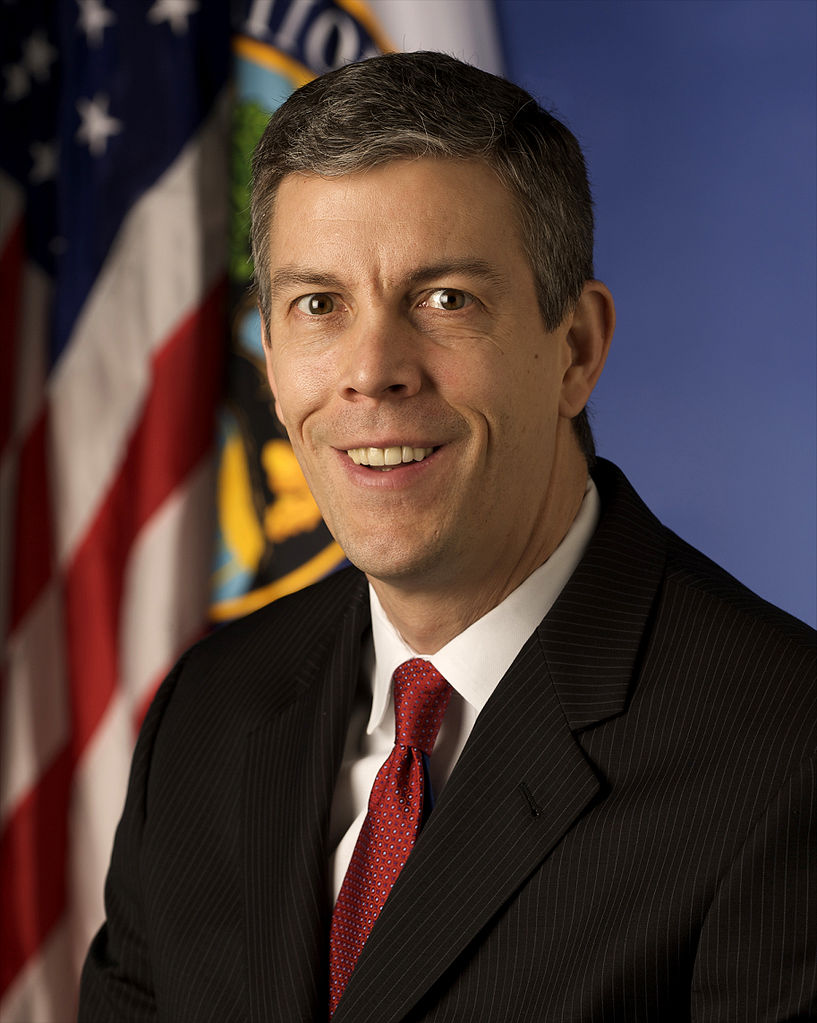 WASHINGTON, D.C. — The Obama administration will offer states financial incentives to expand access to early childhood education programs for low-income children, in a bid to improve the long-term economic competitiveness of the country, U.S. Secretary of Education Arne Duncan said Tuesday.
WASHINGTON, D.C. — The Obama administration will offer states financial incentives to expand access to early childhood education programs for low-income children, in a bid to improve the long-term economic competitiveness of the country, U.S. Secretary of Education Arne Duncan said Tuesday.
Details of the White House proposal are still being worked out, but the administration plans to offer matching federal funds to states that choose to invest in pre-school and pre-kindergarten programs for children whose families make under 200 percent of the federal poverty level, Duncan said at a summit on children and families organized by the Washington Post.
“This is not going to be a federal mandate. This will not be an entitlement,” Duncan said. “We want to focus on the most disadvantaged first. We want to create incentives for states to partner with us.”
The White House is counting on momentum created by what Duncan described as an emerging number of Republican and Democratic governors in states including Massachusetts, Nevada, Georgia, Alabama and Minnesota that are investing in early childhood education, he said. “I’ve never seen such bipartisan support coming from governors from all over the country and that gives me real reason to be hopeful that we can get this done.”
Research conducted by Nobel prize-winning economist James Heckman has shown that every dollar spent on early childhood education yielded a seven-fold return, Duncan said. “There’s been study after study – I’ll be happy to go through the data – that shows this is the best investment we can make,” Duncan said.
He reeled off the evidence in support of good-quality early childhood programs: “The academic returns, the social returns, higher graduation rates, higher college-going rates, lower rates of teenage pregnancy, lower rates of drop-outs, lower rates of incarceration rates in the long term, higher rates of employment.”
Governors in support of such programs were motivated to improve opportunities for the people of their states, in clear contrast to the “dysfunction” of Congressional leaders in Washington, Duncan said pointedly.
After President Barack Obama laid out his proposal for broadening access to early childhood education in his State of the Union speech, Gov. Robert Bentley of Alabama jokingly told Duncan the president had stolen all of the governor’s good ideas, Duncan said.
“When you have the Republican governor of Alabama and the president on the same page, you know that things are changing,” Duncan said.
The United States could regain its global edge if it made smarter investments in early education, Duncan said. “We have to give our children a level playing field in which to compete in a globally competitive economy,” Duncan said. “I promise you, Singapore, South Korea, India, China – their approach, their educational strategy, is not sequestration.”
Although the initial focus was on low-income kids, the ultimate goal was to ensure that all children, regardless of income, have access to high-quality early childhood education, he said.
“This has to get done. It’s not about education, it’s about altering our country’s economic competitiveness,” Duncan said. “If we don’t do it, I think we’ll pay a much higher price on the back end. I think we’re smarter than that.”
Photo from ed.gov






























